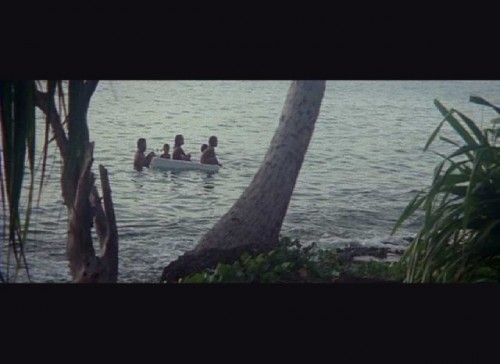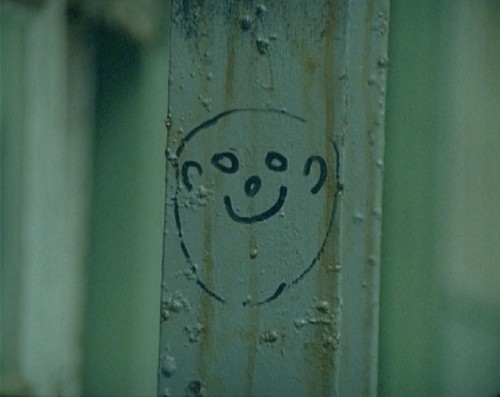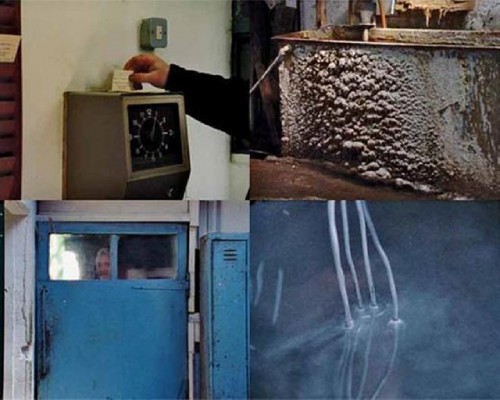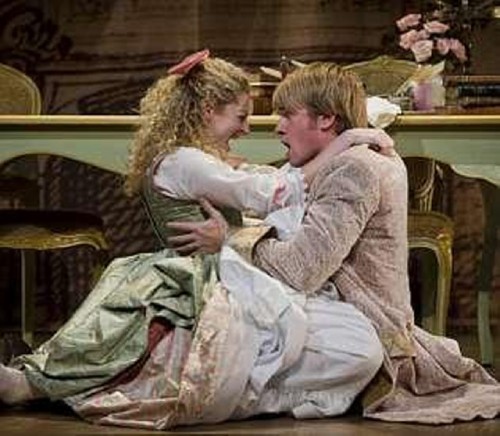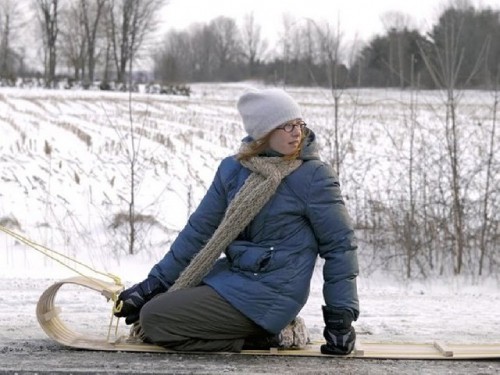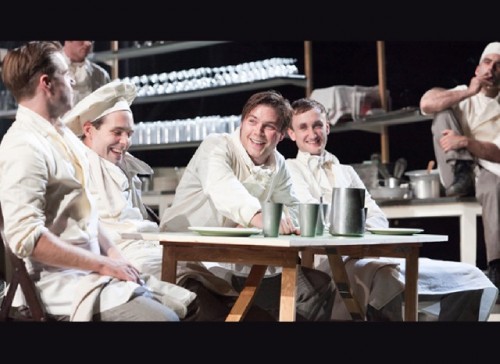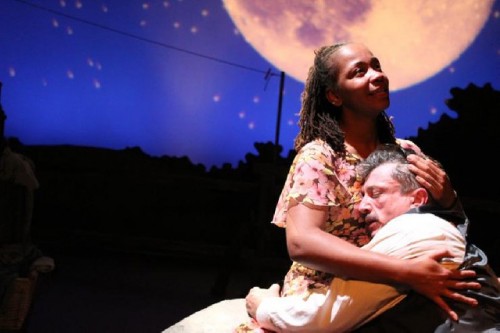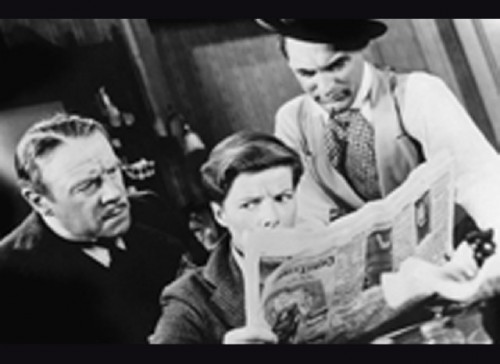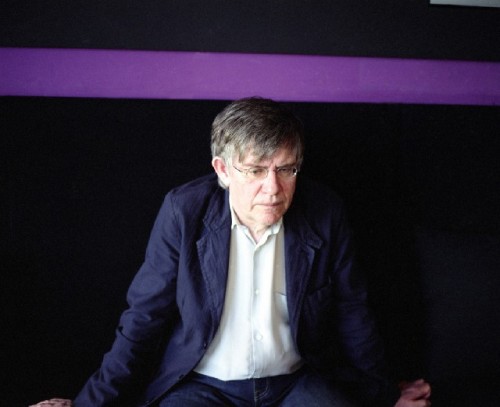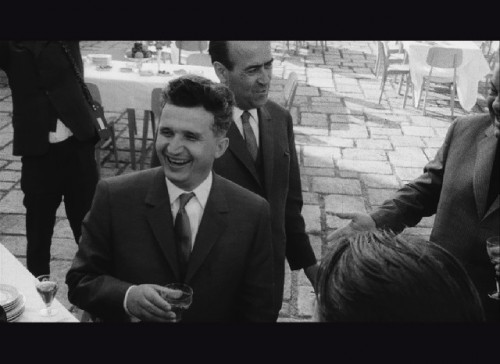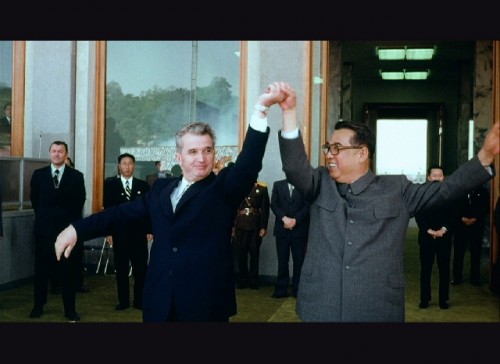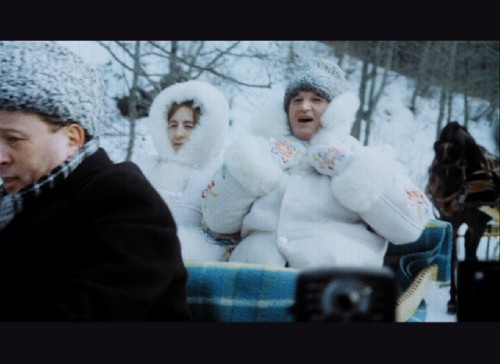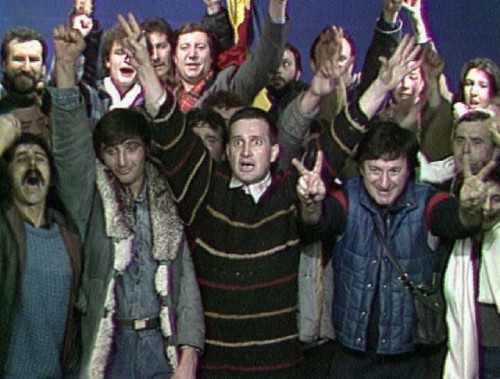Boston Calendar of Cultural Events 10/3 - 10/9
Plays, Films, Classical Music and much more
By: Nelida Nassar - Oct 01, 2011
Monday October 3, 2011 7.00 PM
Harvard film Archives: Slow Action followed by Sack Barrow
British experimental filmmaker and radical ethnographer Ben Rivers (b. 1972) for a screening of two recent works, Slow Action and Sack Barrow that extend his fascination with science fiction, travel and the interweaving of the fantastic and the quotidian.
Slow Action Directed by Ben Rivers
UK 2010, 16mm, color & b/w, 45 min
Slow Action is a four-part microcosmic study of remote and uncanny islands united by a certain uncanny logic of place and by the film’s hypnotic documentary-style voice over written by cult sci-fi author and art critic Mark von Schlegell. Journeying from the Canary Islands to Japan to Polynesia and then back to South West England, Rivers gradually reveals the larger associative constellation created by his overripe imagination which actively channels Robert Smithson, Hammer films and the heroic dream of National Geographic expeditions. Filmed in anamorphic 16mm, Slow Action “stretches” across space and time, reaching back to the geologic past while also pointing towards an uncertain and entropic future.
Sack Barrow Directed by Ben Rivers
UK 2011, 16mm, color, 21 min
Sack Barrow is a poetic essay on labor and history that captures the final shuttering of a pre-WWII factory for injured soldiers, following the routines of the last workers and work days and lingering afterwards. Rivers’ obsession with the “outdated” – that which is anachronistic and yet somehow suspended out of time – finds renewed poignancy and enigma in the slow decay of the factory’s Industrial Age machines.
Tuesday October 4, 2011 – October 16, 2011 various hours
Huntington Theatre Company Play: Candide
Candide, ou l'Optimisme is a French satire first published in 1759 by Voltaire, a philosopher of the Age of Enlightenment. The novella has been widely translated, with English versions titled Candide: or, All for the Best (1759); Candide: or, The Optimist (1762); and Candide: or, Optimism (1947). It begins with a young man, Candide, who is living a sheltered life in an Edenic paradise and being indoctrinated with Leibnizian optimism by his mentor, Dr. Pangloss. The work describes the abrupt cessation of this lifestyle, followed by Candide's slow, painful disillusionment as he witnesses and experiences great hardships in the world. Voltaire concludes with Candide, if not outright rejecting optimism, advocating an enigmatic precept, "we must cultivate our garden", in lieu of the Leibnizian mantra of Pangloss, "all is for the best in the best of all possible worlds".
However, with its sharp wit and insightful portrayal of the human condition, the novel has since inspired many later authors and artists to mimic and adapt it; most notably, Leonard Bernstein composed the music for the 1956 comic operetta adapted from the novel. Today, Candide is recognized as Voltaire's magnum opus and is often listed as part of the Western canon; it is likely taught more than any other work of French literature.
Featuring Leonard Bernstein's soaring score and lyrics from some of the wittiest writers of all time, this outrageous musical satire tells the story of the naïve Candide and his absurd hardships that challenge his optimistic outlook on life and love. This acclaimed new production directed by the Tony Award-winning Mary Zimmerman (Metamorphoses) enchants with some of the most memorable music ever written for Broadway including “Glitter and be Gay” and “Make Our Garden Grow.”
Tuesday October 4, 2011, 5:00 PM - 2:00 AM
Goethe Institute Boston at the Beehive 541 Tremont Street, Boston: Oktober Fest
Roll out the barrel, and have a barrel of fun at Oktoberfest Der Beehive! Enjoy rustic German food and libations while the Oktoberfest German Band plays the best Bavarian and German standards, polkas and beer drinking songs.
Wednesday October 5, 2011 8.00 PM - 9.35 PM
Thursday October 6, 2011 3.30 PM - 5.10 PM
Friday October 7, 2011 6.00 PM - 7.35 PM
Saturday October 8, 2011 12.30 PM - 2.10 PM
Sunday October 9, 2011 1.00 PM - 2.35 PM
Museum of Fine Arts Film: Curling
The fascinating fifth feature by Québécois auteur, Curling is a portrait of Jean-François (Emmanuel Bilodeau), a single father who works nights at a deserted bowling alley and days in a rundown motel, and his daughter, Julyvonne (Philomène Bilodeau, Emmanuel’s real-life daughter), who he isolates from the community in fear that contact with the outside world will scar her. Sensitive, expressive images are crafted to perfection by cinematographer Josée Deshaies while Côté masterfully distorts our perception of time, letting it linger in beguiling stillness as winter slowly seeps away. Côté unfolds his minimalist narrative from the inside out, resulting in an impressively austere film that establishes an immediate emotional connection. Description adapted from the Toronto International Film Festival. In French with English subtitles.
Thursday October 6, 2011 7.00 PM
Coolidge Corner Theatre Play: The Kitchen
1950s London. In the kitchen of an enormous West End restaurant, the orders are piling up: a post-war feast of soup, fish, cutlets, omelettes and fruit flans. "Fifteen hundred customers an' half of them eating fish. I had to start work on a Friday."
Thrown together by their work, chefs, waitresses and porters from across Europe – English, Irish, German, Jewish – argue and flirt as they race to keep up. Peter, a high-spirited young cook, seems to thrive on the pressure. In between preparing dishes, he manages to strike up an affair with married waitress Monique, the whole time dreaming of a better life. But in the all-consuming clamour of the kitchen, nothing is far from the brink of collapse.
"We all said we wouldn’t last the day, but tell me - what is there a man can’t get used to?"
Arnold Wesker’s extraordinary play premiered at the Royal Court in 1959 and has since been performed in over 30 countries. The Kitchen puts the workplace centre stage in a blackly funny and furious examination of life lived at breakneck speed, when work threatens to define who we are.
Thursday October 6, 2011 8.00 PM
Friday October 7, 2011 8.00 PM
Boston Symphony Orchestra Music: Britten, Prokofiev and Sibelius
Sean Newhouse, conductor; Jean-Efflam Bavouzet, piano Britten: Four Sea Interludes, from Peter Grimes
Prokofief: Piano Concerto No. 3
Sibelius: Symphony No. 2
Friday October 7, 2001 – January 16, 2012
Institute of Contemporary Art Dance: Trisha Brown Dance Company Floor of the Forest
Presented in the Dance/Draw galleries, Trisha Brown’s Floor of the Forest—part sculpture, part dance prop, part performance—features a 12 x 14–foot steel pipe frame across which ropes are tied and densely threaded with used clothing. Within the structure two dancers wend and weave, literally dressing and undressing their way through the sculpture. Each performance is subject to chance, allowing the individuality of each dancer who performs it to determine their movements, meaning no two performances are ever the same. Tickets: Free with museum admission.
Friday October 7 - November 7, 2011 8.00 PM
Central Square Theater Play: A Moon for the Misbegotten
The Nora Theatre company presents a revival of Eugene O’Neill’s enduring masterpiece. A uniquely funny and poignant play that brings together two of O’Neill’s most memorable characters, Josie Hogan, the tough-talking daughter of an Irish immigrant farmer, and Jim Tyrone, first introduced in O’Neill’s autobiographical “Long Day’s Journey Into Night.” Burdened with dark family legacies, they find solace in each other as their search for redemption weaves an unlikely and magnificent love story.
The cast includes Ramona Lisa Alexander as Josie Hogan, Will McGarrahan as Jim Tyrone and Billy Meleady as Phil Hogan. It is directed by Richard McElvain.
Friday October 7, 2011 6.30 PM
Sunday October 9, 2011 2.00 PM
ArtsEmerson Film: Sylvia Scarlett
Bright Family Screening RoomTeamed for the first time with Cary Grant, Hepburn masquerades for three-quarters of SYLVIA SCARLETT as a boy. The film’s mayhem of sexual confusion proved too much for 30s audiences – and won it a devoted cult following in the 1980s.
Friday October 7, 2011 8.30 PM
Saturday October 8, 2011 7.00 PM and 8.45 PM
ArtsEmerson Film: Little Rock
Chaplin stepped into feature-length storytelling with this classic tale of the down-but-never-out Tramp and his inseparable sidekick, the adorable 6-year-old ragamuffin he rescued as a foundling.
Saturday October 8, 2011 7PM
Harvard Film Archives: The Autobiography of Nicolae Ceausescu (Autobiografia lui Nicolae Ceausescu)
During his rule of Communist Romania from 1967 to 1989, Nicolae Ceausescu and his administration documented their reign on hundreds of hours of film. Drawing on footage from the Romanian National Film Archive and state television, Ujica transforms a historical chronicle into a spellbinding, sweeping epic by simply proceeding chronologically through the decades with little commentary or exposition; there are no titles, captions or voiceover. Ujica’s primary authorial intervention consists of precise selection, ingenious editing and a cleverly subtle soundtrack construction. Although Ujica includes some unguarded moments, all the images are essentially staged; they originate from events public or private that Ceausescu ordered photographed. For most of this slyly astonishing film, Ceausescu seems to be as much in thrall to the image he created of himself as his subjects were presumed to be.
Directed by Andrei Ujica
Romania/Germany 2010, digital video, b/w & color, 180 min. Romanian with English subtitles
Sunday October 9, 2011 7.00 PM
Harvard Film Archives: Videograms of a Revolution (Videogramme einer Revolution)
After fall of the Berlin Wall and Czechoslovakia’s Velvet Revolution in 1989, the Soviet bloc was showing signs of imminent collapse. The uprising in Romania that overthrew the rule of dictator Nicolae Ceausescu in December of that year was extensively documented on video, whether shot by ordinary citizens or by professional journalists. Additionally, cameras in the studios of the state television network captured the enormous effort to report events as they unfolded, as well as the very physical struggle for control of the network itself. Ujica and Farocki edit this footage into a gripping account of the weeklong revolution while implicitly pointing to the ever-increasing importance of images and image-making in public life. Although the title refers to the overthrow of Ceausescu, the film marks another revolution: cinema’s distanced gaze at history being supplanted by the live-ness of television. Directed by Harun Farocki and Andrei Ujica
Germany 1992, 16mm, color, 106 min. German, Romanian, English with English subtitles
Sunday October 9, 2011 3.00 PM - 4.40 PM
Museum of Fine Arts Film: Valley of Strength
Valley of Strength (Gei Oni) by Dan Wolman (Israel, 2010, 102 min.). Veteran director Dan Wolman (My Michael) offers a rare yet authentic depiction of late 19th-century Palestine as a romantic drama based upon the novel by Shulamit Lapid. Following a pogrom that left the remainder of their family dead, 17-year-old Fania arrives at the port of Jaffa from Russia with her baby daughter, her elderly uncle, and her shell-shocked brother. Having no choice, Fania marries Yechiel, a local widower with two young children whose wife died of malaria. The new family sets out for a small settlement near Safed, where Yechiel and other settlers attempt to cultivate the barren lands they bought from local Arabs. Fania is burdened by a harrowing secret; until she can share it with Yechiel, their marriage is one in name only. In Hebrew, Yiddish, Arabic, Russian, Turkish, and Romanian with English subtitles.

